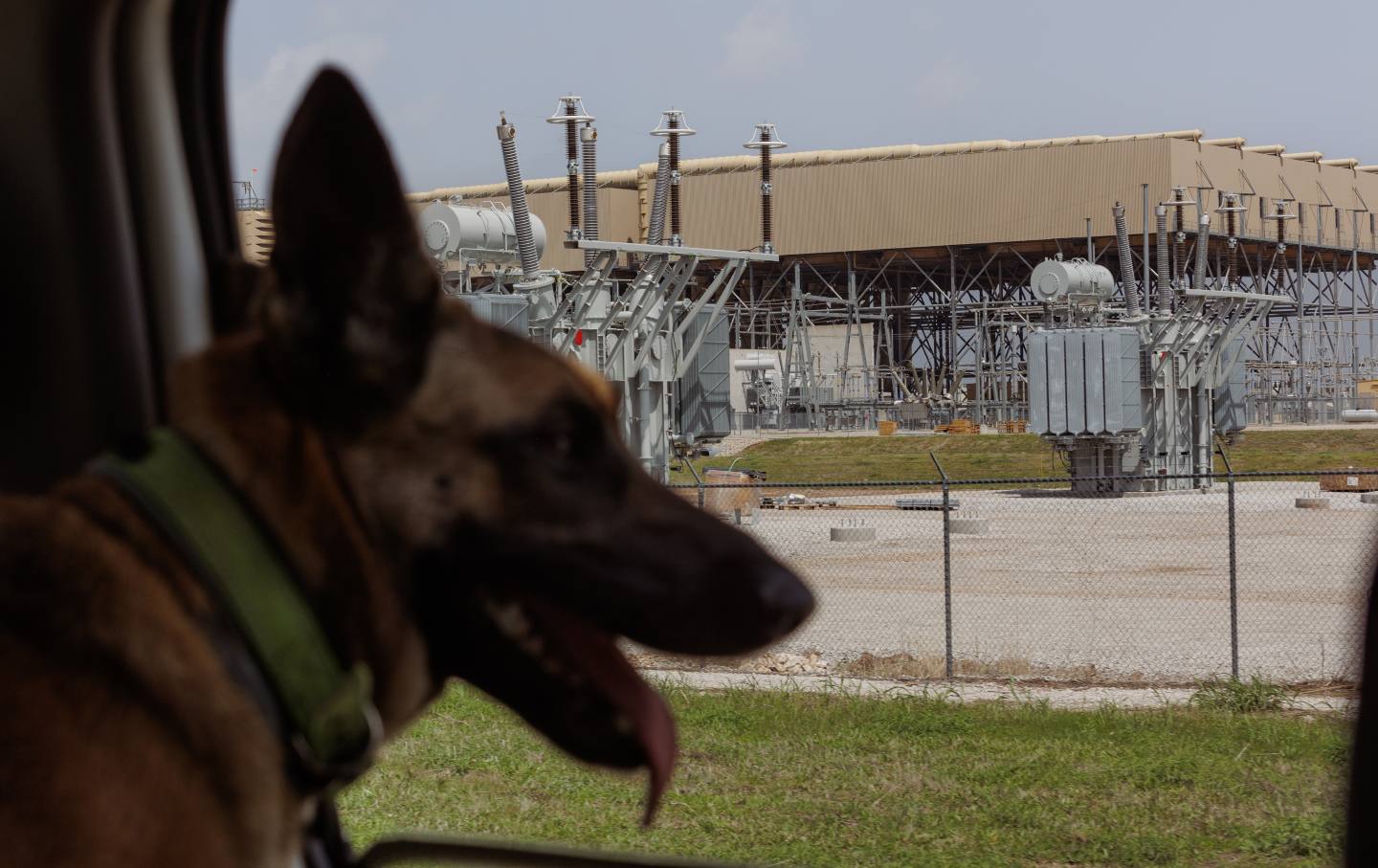The Texas Crypto Conundrum: Mining Away Resources and Peace
Public officials are supporting a burgeoning Texas Bitcoin boom threatening vital water and energy systems, while locals grapple with escalating noise pollution.
In October 2024, a momentous meeting at the Navarro County Commissioners Court drew an unusual crowd. This was not a typical gathering for local governance but an assembly sparked by a Colorado-based company, Riot Platforms, appealing for a multimillion-dollar tax abatement to expand its extensive cryptocurrency mining operation near Corsicana, Texas. Packed into the small courthouse were residents concerned about the implications of such an expansion and employees of Riot eagerly supporting the initiative.
Among the locals was Jackie Sawicky, a permaculturist and founder of the Texas Coalition Against Cryptomining (TCAC), donning a T-shirt emblazoned with a crossed-out Bitcoin symbol. She spoke passionately about the lack of transparency and consent surrounding the massive 265-acre mining operation proposed by Riot.
Sawicky highlighted that while Riot promised to create jobs, locals’ concerns about water scarcity and a fragile power grid were valid. The influx of cash from a multibillion-dollar corporation, she pointed out, shouldn’t come at the expense of the community’s resources.
The Proliferation of Cryptomining in Texas
Texas has emerged as a global hotspot for cryptocurrency mining, particularly after China curtailed such activities. State officials welcomed mining companies with open arms, highlighting the state’s deregulated electricity market and abundant natural resources. Governor Greg Abbott proclaimed Texas as "open for crypto business," a declaration that attracted miners like Riot Platforms.
Riot’s operations primarily revolve around "mining" Bitcoin, which involves using powerful computers to authenticate transactions on the blockchain network. However, this process is exceptionally resource-intensive, necessitating vast quantities of electricity and—often overlooked—water.
Community Concerns
Locals gathered en masse during the October meeting to voice numerous apprehensions. Navarro County’s residents were particularly worried about the potential environmental ramifications and noise pollution. Residents spoke of the history of energy shortages and the effects of the disastrous winter storm of 2021, which left many without power for extended periods.
John Blewitt, a concerned resident, reminded commissioners of the fragility of Texas’s electrical grid, warning that the anticipated expansion could jeopardize both energy security and environmental integrity.
The Costs of Expansion
Riot’s plans included significantly augmenting its energy demands, which could rival that of a new city housing over 250,000 people. Critics like Sawicky argued that such expansions would only bolster an industry that currently consumes more than 3,200 megawatts of electricity, enough to power 800,000 homes.
Moreover, the proposed site lies in proximity to Corsicana’s vulnerable water supply, with Riot’s facility reportedly requiring ice-like cooling systems that could consume nearly 1.5 million gallons of water a day. This figure alone represents a considerable portion of the city’s maximum daily water usage, raising alarms about the sustainability of local water resources under unyielding drought conditions.
Noise Pollution
Alongside energy and water concerns, residents have reported an increase in noise pollution stemming from ongoing cryptomining operations. The relentless hum of mining equipment not only disrupts the tranquility of rural living but also brings a host of health concerns linked to prolonged exposure to such noise levels. For many, particularly those living near the Marathon Digital Holdings cryptomine in Granbury, the experience of sleepless nights and the onset of ailments like vertigo and migraines became a grim reality.
Residents like Cheryl Shadden, enduring escalating noise levels that even peaked at 106 decibels at night, assert that the quality of life has deteriorated significantly. While Riot claimed to implement mitigation measures, many locals remained skeptical of the effectiveness of these systems.
Political Dynamics and Local Activism
The political landscape surrounding cryptocurrency mining in Texas is complex. While local community members express their concerns, they often find themselves pitted against a well-funded and politically connected industry. Rio’s high-profile lobbying efforts and financial contributions to state legislators, including those aligned with the cherished conservative agenda, have strengthened its political might.
Informed by various grassroots efforts and coalitions like TCAC and later, the National Coalition Against Cryptomining (NCAC), local activists have organized protests and lobbied for greater transparency and accountability from mining companies. These efforts aim to ensure that communities have a voice in decision-making processes that affect their resources and environment.
Legislative Challenges
Despite numerous community protests and appeals to local leaders, resistance to the cryptocurrency boom faces significant hurdles. Legislative proposals aimed at establishing stricter regulations for cryptominers—such as limiting tax incentives—have repeatedly stalled. Instead, lawmakers have introduced bills to promote cryptocurrency growth, aligning with a broader national trend towards deregulation.
The Broader Implications
As Texas’s cryptomining industry continues to explode, it poses serious questions about sustainable energy consumption, environmental justice, and public health. Growing concerns about the impacts of climate change and the reliance on fossil fuels frame the industry within a broader discourse on energy equity.
Activists like Sawicky and Shadden remain undeterred, advocating not just for their communities but also participating in a national push against cryptomining practices that threaten the planet. Their efforts, however, face an uphill battle in a political landscape where corporate interests often overshadow community needs.
The future of Texas—its resources, communities, and environment—hangs in the balance as the cryptocurrency industry continues its rapid expansion. Balancing economic gain against sustainability and community integrity remains a pivotal challenge.


